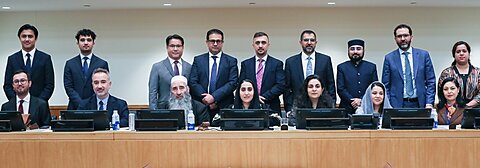On September 26, I joined an international conference held at the United Nations headquarters in New York City: “Weaponization of Religion by the Taliban and Its Consequences on Afghanistan and Beyond.” It was organized by the Permanent Mission of Afghanistan to the United Nations, which is still controlled by Afghan diplomats of the former constitutional government that was overthrown by the Taliban in 2021. The event brought together an international team of ministers, diplomats, academics, Islamic scholars, and human rights activists.
In my session, I argued:
By depriving women of their right to education, the Taliban regime is reversing a step forward that the Islamic civilization already took some 150 years ago, when the Ottoman Caliphate opened many modern schools for females and advanced their rights. By dictating their own narrow interpretation of Islam on all, they are also depriving Muslims of the freedom to practice their religion as they sincerely believe in it. They are violating the Qur’anic principle, La ikraha fid-din, or “There is no compulsion in religion.”
The full event can be viewed on the UN TV. The text of my speech can be downloaded here and can be viewed on the Cato Institute website.
The intellectual battle for freedom in Afghanistan is definitely an uphill one today — but also a crucial one. And, as Afghan diplomats and activists stress, the Taliban’s oppressive policies should be challenged, especially with religious arguments. In this event, I had the chance to share a few of those arguments — in addition to my earlier engagement with Afghan audiences after the local edition of my book, “Why, As a Muslim, I Defend Liberty.”
More will come, inshallah, as we say.
















